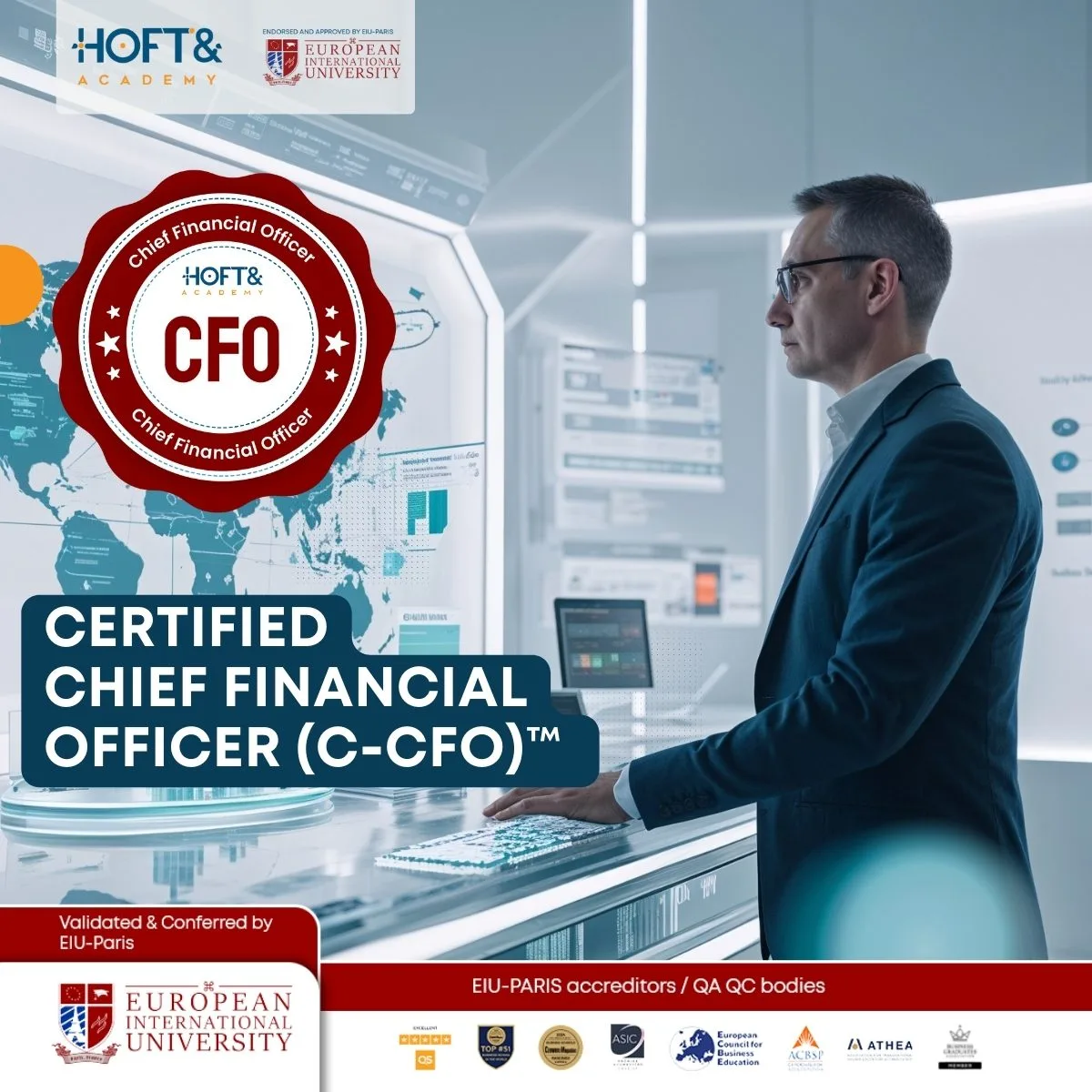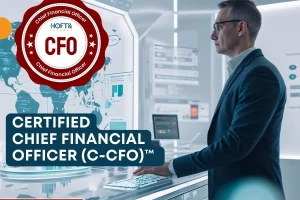
The CFO Certification Roadmap: Validated Pathways for Financial Leadership Excellence
You don’t just “become” a CFO by ticking boxes or collecting years of experience. It’s more like a turning point—when your role shifts from managing numbers to shaping direction. And truthfully, the path there isn’t always clear-cut. One year you’re deep in the weeds of financial modeling, and the next, you’re being pulled into strategy meetings that touch every part of the business.
If you’re aiming for a top finance seat—something real, with influence—you’ve probably already realized: the skill set that got you here won’t be enough to get you there. It’s not just numbers and budgets anymore. It’s bigger. Where’s the company going? What risks are we walking into? Can we keep up with the pace of change? These are the questions that land on a CFO’s desk now.
So what gets you noticed? What proves you’re ready?
Sometimes, it’s a credential. But not just any credential—the right one. It’s the kind of thing that pushes you to think differently, maybe lead in ways you haven’t before—and it signals to others that you’re not just doing your job well. You’re thinking bigger.
That’s where programs like the Certified Chief Financial Officer (C-CFO) come in. Delivered by HOFT Academy and certified through EIU-Paris, it’s designed for finance leaders who aren’t just looking to move up—they want to lead with confidence in a complex, global business world.
The CFO Role Has Changed—and It’s Not Going Back
Ask someone what a CFO does and you might still hear: “They manage the company’s money.” But that’s just a fraction of the story now.
Modern CFOs are expected to help shape long-term strategy. They’re pulled into decisions about technology, sustainability, even talent. It’s a high-stakes balancing act—keeping the business financially sound while helping it grow and adapt.
Here’s what today’s CFOs are actually doing:
- Leading company-wide tech shifts (yes, even digital transformation)
- Weighing in on environmental and social strategies
- Dealing with security threats no one saw coming ten years ago
- Making tough calls in turbulent markets
- Acting as the CEO’s closest thought partner
One recent survey from Deloitte put it bluntly: Nearly 70% of CEOs say their CFO is now their most important strategic ally.
That’s a major shift—and it explains why certifications are more relevant than ever. They’re not just about showing what you know. They show that you can think like an executive.
So… Do Certifications Actually Help?
Short answer: yes. But not just any certification. The right ones can dramatically shift how others see you—and how you see yourself.
Here’s why they matter:
- They back up your experience with structured expertise
- They often fast-track promotions (and raise your salary game)
- They keep you relevant as the industry keeps changing
- They prove you’re playing the long game—investing in growth, not just showing up
Also, let’s be honest: in competitive environments, credentials open doors that talent alone sometimes can’t.
Building Your Career Step-by-Step (With Certs That Actually Matter)
Let’s walk through the three big phases of the finance career ladder—and what certifications make the biggest difference at each step.
Phase 1: Getting Started (0–5 Years of Experience)
At this point, you’re learning fast, trying to stand out, and probably starting to figure out what kind of finance leader you don’t want to be.
Two certifications are especially useful here:
📌 CIFPA (Certified International Financial Planning & Analysis)
If you’re in FP&A or thinking of stepping into that world, this isn’t just about reporting numbers—it helps you actually understand what they mean and how to use them when you’re sitting across from business leaders.
📌 Finance Business Partner Certification
This one helps you go from being “the numbers person” to being someone people listen to. It’s not something most people pick up automatically. Sure, you learn the finance part, but knowing how to use it to get people aligned—that’s different.
Phase 2: Mid-Career (5–15 Years In)
This is the stretch where a lot of finance professionals start feeling a little stuck. You’ve got experience, you’re managing teams, and maybe you’re involved in strategic discussions—but you’re not quite at the executive table yet. Certifications at this stage should help you lead, not just analyze.
Here are three that stand out:
📌 Certified Strategy Practitioner (CSP)
This one’s built for people who want to move beyond financial reporting and get into the heart of business strategy. It covers things like competitive positioning, growth frameworks, and scenario planning. You start to think like a strategist—not just someone who reacts to financial outcomes, but someone who influences them.
📌 Mergers & Acquisitions Certification
If your company is growing (or you’re planning to move to one that is), this cert helps you speak the language of M&A. You’ll understand how deals get done—from valuation and due diligence to post-merger integration. It’s one of those areas where even seasoned finance professionals can get caught off guard if they haven’t studied it in depth.
📌 AI & Data Analytics for Finance
Let’s face it: the data game has changed. This certification is designed to help finance professionals understand machine learning, automation, and predictive analytics—without needing a computer science degree. If you’re expected to lead digital initiatives or automate reporting processes, this one keeps you future-ready.
Phase 3: Executive Readiness (15+ Years and Counting)
You’re already leading. Maybe you’ve got a seat at the table. But now it’s about scale—leading across functions, across markets, and across uncertainty. If that sounds familiar, it’s probably time to consider the Certified Chief Financial Officer (C-CFO) program.
📌 Certified Chief Financial Officer (C-CFO)
Offered by HOFT Academy | Backed by EIU-Paris
This program isn’t about brushing up on spreadsheets. It’s about helping seasoned finance leaders step fully into the role of trusted advisor, board influencer, and company strategist.
The Curriculum Covers:
- Corporate finance at the boardroom level
- Capital structure strategy
- Investor relations and stakeholder communication
- Navigating ESG in financial planning
- Leading digital and organizational transformation
- Risk, volatility, and long-range decision-making
Why It’s Different:
- Global Credibility – The EIU-Paris certification opens international doors
- Real-World Learning – Focuses on case studies and peer discussions, not academic theory
- Executive Network – You’ll learn alongside CFOs and senior leaders from multiple industries
- Future-Facing – Covers trends in AI, sustainability, and governance
Think of it as a finishing school for senior finance leadership—except everything you learn applies immediately.
Conclusion: Building Your Path to the C-Suite
The journey from analyst to CFO has never been more challenging—or more rewarding. While experience remains fundamental, strategic certifications serve as powerful accelerators, particularly the Certified Chief Financial Officer (C-CFO) program certified by EIU-Paris.
Key takeaways:
- CFO roles now require broader skills than ever before
- Certification ROI extends beyond knowledge to career mobility
- The C-CFO provides unmatched preparation for executive responsibilities
- Complementary certifications address specialized competencies
- Continuous learning is non-negotiable in today’s financial landscape
For finance professionals serious about reaching the C-suite, a strategic certification roadmap—with the C-CFO as its centerpiece—represents the clearest path to success.
Ready to begin your executive transformation? Explore HOFT Academy’s programs and take the first step toward CFO leadership today.

